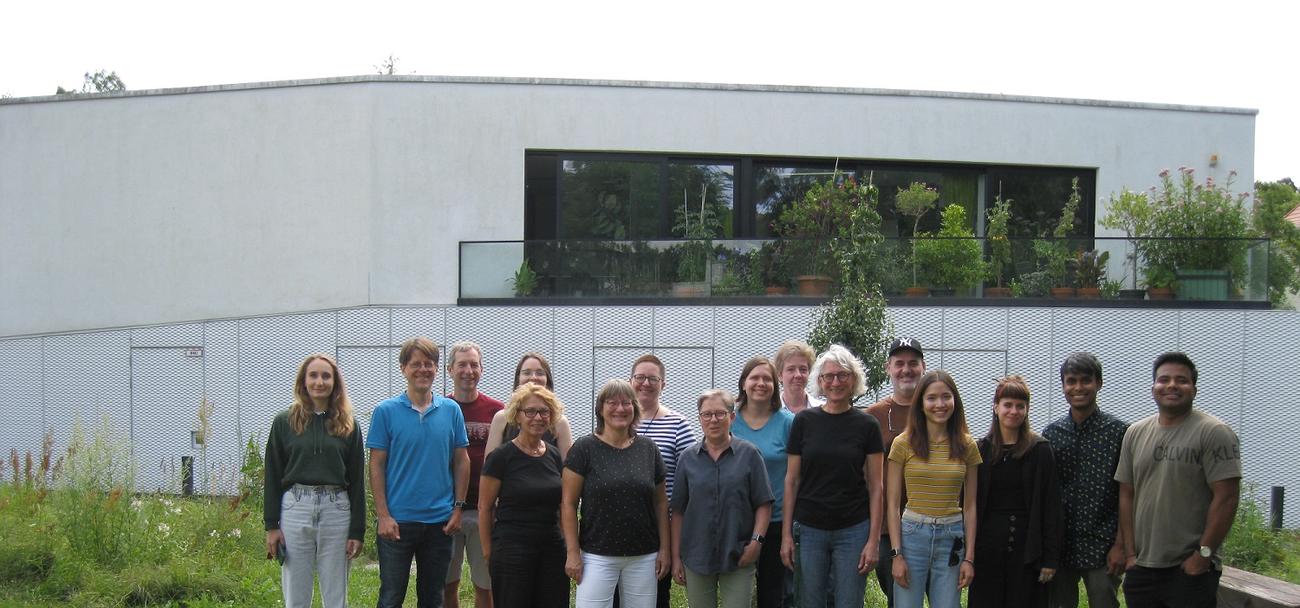Schubert Group - Epigenetics of plants
FU Berlin, Institut für Biologie,
Königin-Luise-Str. 12-16, 14195 Berlin
Head of the group
Prof. Dr. Daniel Schubert (Room 105)
Tel.: +49 30 838 58759
Email: dan.schubert@fu-berlin.de
Office
Marina Hasse
Tel.: +49 30 838-58254
Email: office-epigen@bcp.fu-berlin.de; marina.hasse@fu-berlin.de
General Information
Our research focuses on memory processes in plants which are induced by developmental or environmental cues. Transitions in the plant lifecycle such as germination, the transition from embryonic to vegetative growth, and flowering, the transition from vegetative to reproductive growth, are usually very stable so that embryonic traits or vegetative traits, respectively, are suppressed after a phase transition. Similarly, recurring stress such as pathogen attack or adverse temperature may create a memory so that plants which have been exposed to a stress are more resistant to a subsequent stressful event, a phenomenon termed “priming”. As the memory is usually reset every generation, developmental or stress memory cannot rely on changes of DNA sequence and therefore rely on epigenetic mechanisms.
We aim to identify the molecular mechanisms and factors which control developmental memory and reveal the cell types in which the memory occurs. We use genetic, molecular and biochemical techniques combined with advanced imaging and (epi)genomics for our studies. Knowledge of the mechanisms underlying memory processes in plants may contribute to control and stabilize phase transitions for higher fruit and seed yield and enhance the resistance of plants to recurring stress. Our team is a member of the Dahlem Centre of Plant Sciences, one of the research focus areas of the FU-Berlin.
Research
Dissecting plant memory: memory in plant development and in response to stress
During growth of plants and animals, cell and organ identity and switches in cell fate need to be maintained throughout the lifecycle. This is particularly relevant in plants were environmentally induced phase transitions occur, such as the transition from embryonic to vegetative growth, termed germination, and the transition from vegetative to reproductive growth, termed flowering. Similarly, recurring stress such as pathogen attack or adverse temperature may create a memory so that plants which have been exposed to a stress are more resistant to a subsequent stressful event, a phenomenon termed “priming”. Priming and memory are studied the SFB973.
Cell fate transitions and stress memory can be stable through cell divisions, but are usually reset in each generation. Therefore, epigenetic mechanisms - stable, heritable changes that occur without alterations in the DNA sequence - play a major role in the control and maintenance of cell fate and likely also in stress memory.
Key regulators of the epigenetic control of cell fate are the Polycomb-group (Pc-G) proteins and their antagonists, the Trithorax-group (Trx-G) proteins. These proteins are conserved in all multicellular organisms and have many important functions including roles in cancer and stem cell control. Plant Pc-G proteins control many economically and developmentally important traits including seed and flower development, flowering time and meristem identity and are generally required to maintain cell fate. Pc-G proteins act on chromatin via tri-methylation of lysine 27 of histone H3 (H3K27me3). Although Pc-G proteins have been extensively studied, it is still not known – specifically in plants - how these proteins are recruited to their target genes and how the histone methylation marks confer stable gene silencing. It is therefore important to identify additional players that mediate Pc-G silencing in plants.
The lab is interested in contributing to the following aspects of epigenetics:
- Identification of novel factors controlling cell fate
We apply forward and reverse genetics screens and biochemical analyses to discover novel, possibly plant-specific components of Pc-G complexes to understand Pc-G mediated gene regulation and cell fate control. In addition, we are developing novel technologies which allow the identification of novel plant Pc-G mutants independent of their phenotype. We are interested how these novel proteins are involved in Pc-G mediated silencing, whether they recruit Pc-G proteins to specific sites in the nucleus and whether they link Pc-G proteins to specific developmental or signaling pathways. - Floral commitment: an agriculturally relevant epigenetic phenomenon
Once flowering has been induced, it is usually a very stable process as plants continue to flower even after a shift to non-inducing conditions. In some plant species such as soybean, detrimental environmental conditions can cause a switch back to vegetative growth which limits seed and fruit production. In addition, some perennial plant species revert to vegetative growth after a reproductive phase. We have revealed that PcG proteins and other epigenetic regulators maintain floral commitment in Arabidopsis thaliana and perform further genetic screens to identify additional factors controlling floral commitment. In addition, we are interested in identifying the target genes of epigenetic gene regulation and revealed an important function for the florigen FLOWERING LOCUS T (FT) not only in the initiation but also in the maintenance of flowering. - Identification of the cell types in which plant memory occurs
Although plants show a memory of developmental and environmental changes it is unclear whether all cell-types have a similar potential to memorize or whether specific cell-types exist which are particularly relevant for a memory. We use genome-wide epigenetic profiling of specific cell-types to study the extent of epigenetic changes caused by developmental or environmental cues and combine this with genetic approaches to identify differences in the memory potential of specific cell-types.


